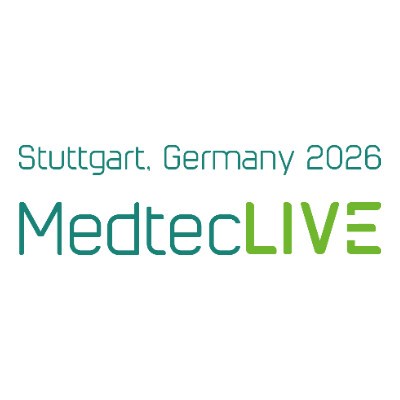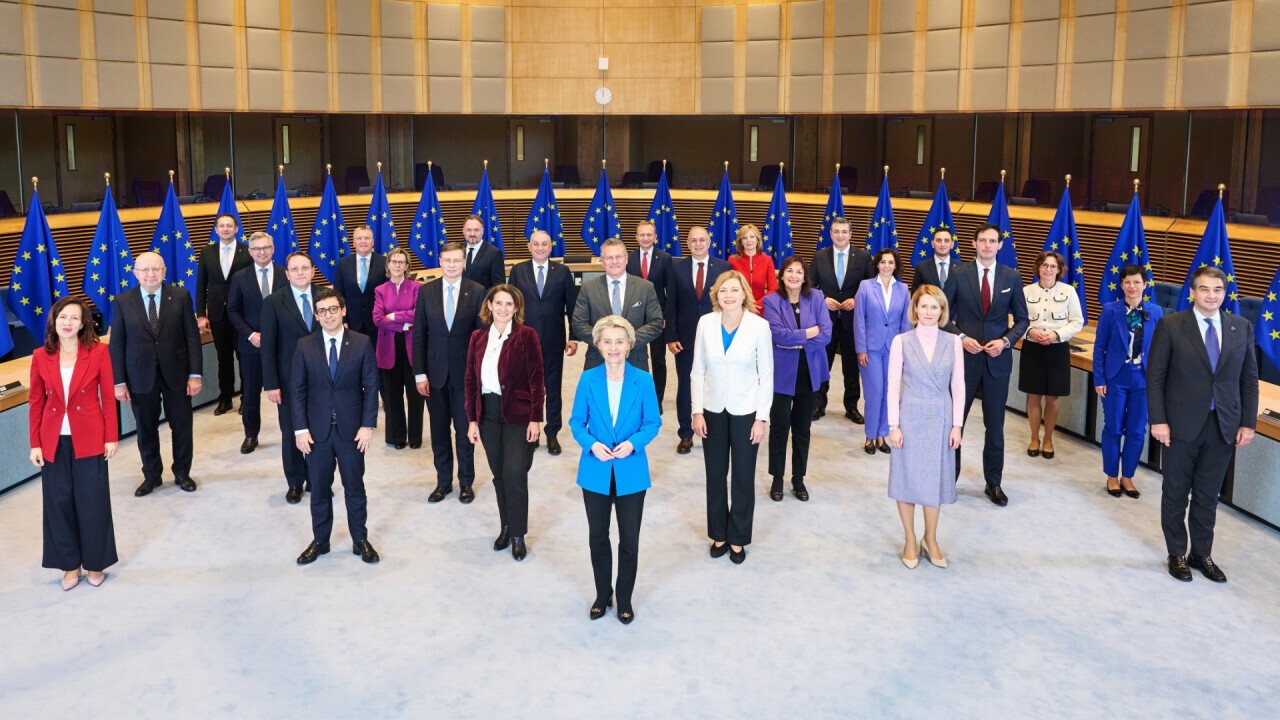What's next for the MDR? New EU Commission hints at change of direction
The Medical Device Regulation has been criticised by the medtech industry for being too bureaucratic and hindering innovation. MedtecLIVE asked how the portfolio of the new Health Commissioner Olivér Várhelyi intends to deal with this. The answers from Brussels show where the journey could take us.
Has the EU gone too far with regulation in the MDR?
EU Commission: The aim of the Commission is to have safe, innovative and high-quality medical devices available to EU patients and to lessen costs and burdens for our companies. In 2017 Europe's rules on medical devices and in vitro diagnostics were comprehensively re-designed. Their aim is putting patient safety first. A key priority of a strong European Health Union, and indeed a priority of the Commissioner for Health, is precisely to address shortcomings through the flexibilities of the current framework while considering potential legislative changes to ensure that the framework supports innovation and the availability of devices to safeguard high-quality patient care.
The EU Parliament called on the Commission in October 2024 to improve the MDR within 100 days of taking office. Are you planning to fulfil this request? If so, what do you want to do first?
EU Commission: In its resolution of 23 October 2024, the European Parliament called for a systematic revision of the Regulations, accompanied by an impact assessment, “to be conducted as soon as possible”.
The Commission has begun evaluating the existing EU rules to address shortcomings, as necessary. The evaluation will assess how the Regulations perform and affect the sector’s competitiveness and the availability of medical devices in the EU, also for orphan and innovative devices. The Commission is already taking action, and services have launched a call for evidence and public consultation on 12 December 2024, which is open until 21 March 2025. This will collect the necessary data in a transparent and inclusive way, ensuring that any future decisions, including potential legislative changes, are taken based on facts.
It is worth recalling that the President, in the mission letter for the Commissioner for Health and Animal Welfare, stated that one of the Commission’s priorities is to ensure the availability and competitiveness of medical devices.
Additionally, in the Commissioner’s written answers to the European Parliament he emphasised that he would prioritise the ongoing evaluation of the regulatory framework on medical devices and consider potential legislative changes to ensure that the framework supports innovation and the availability of devices to safeguard high-quality patient care, including for children. In this context, he would look at the need to reduce costs and administrative burdens, especially for SMEs.
In the shorter term, there are already possibilities within the current framework of the Medical Devices Regulations for flexibilities, and we will make full use of these opportunities and are preparing to take appropriate measures as soon as possible.
Could the 5-year recertification for low-risk medical devices be abolished? Do you consider the introduction of an orphan device regulation similar to that in the USA to be a conceivable option?
EU Commission: It should be stressed that re-certifications are not repetitions of initial certifications. Nonetheless, as part of the ongoing evaluation of the Regulations, we will also assess the performance of the 5-year re-certification cycle and options to address any shortcomings. This was noted by the European Parliament in its resolution of 23 October 2024, by several Member States in their note for the EPSCO Council on 3 December 2024 and by industry.
The evaluation will also look at the specific situation of orphan devices and certain innovative breakthrough devices.
Some manufacturers register their medical devices with the FDA in the United States, while these products are then missing in the EU. What do you think about the security of supply in Europe?
EU Commission: As we have stated above, our key objective is to ensure that safe, high quality medical devices are always available for EU patients. This is precisely why we have launched a call for evidence and public consultation through which we will also assess the availability of devices, in addition we will also explore issues related to the security of supply.
Within the existing framework, we have taken necessary action to improve the availability of medical devices and give more flexibility to producers, notably by extending the MDR and IVDR transition periods for complying with the new rules. The evidence we have gathered so far suggests the extensions are meeting their objectives, also thanks to the increased number of designated notified bodies that can certify devices.
We are also requiring that manufacturers inform, among others, regulators and healthcare professionals in case of potential supply issues. In addition, we issued guidance for the certification of devices for small patient populations (‘orphan devices’), such as children and or patients with rare diseases.
These measures will enable healthcare systems to react more quickly and take timely action to safeguard patient care.

© Envato Elements
As Commissioner for Simplification, it is Valdis Dombrovskis' job to reduce the administrative and reporting burden for companies. That sounds like he will also have to think about the MDR. Who will be in charge here?
EU Commission: It is the responsibility of all Commissioners to ensure that we make Europe simpler and faster and more competitive. This is outlined in the mission letter of the Commissioner for Health. In this regard, he will work closely with Commissioner Dombrovskis and other colleagues to ensure alignment of methodology, eliminate redundancies or incoherences across different regulatory frameworks, and maximise synergies with related proposals.
Many medtech companies are SMEs. How can their competitiveness be strengthened aside from the MDR issue?
EU Commission: The Commissioner for Health has been tasked to complete the European Health Union, by further diversifying supply chains, improving access to the most advanced treatments, boosting the competitiveness, resilience and security of health systems and working on strategic inventories.
Besides concluding the reform of the pharmaceuticals legislation and proposing a Critical Medicines Act, Commissioner Várhelyi will also work on a European Biotech Act, focused on the need for a regulatory environment conducive to innovation in areas of health technology assessment, clinical trials and others. The EVP Séjourné’s input will seek to further enhance the European Biotech Act, with a focus on acceleration of the entry on the market of biotech solutions and on the across sectoral scope of the Act.
These initiatives, together with the work on MDR and IVDR, aim to create an environment that supports the competitiveness and innovation capacity of the European life science and medtech sectors.
Furthermore, the pharmaceutical reform offers a simpler regulatory framework with more streamlined rules when it comes to complex, combination products, clarifying which evidence is required if such a medical device is used together with a medicinal product.
SMEs will receive fee reductions or waivers and scientific and regulatory support from the European Medicines Agency. They will also benefit from less regulatory burden as all applications will be electronic, renewals of Marketing authorisations are abolished, and assessment times are reduced. These simplifications are expected to generate savings of EUR 300 million annually for companies and public authorities.
Finally, the most innovative SMEs can use regulatory sandboxes to test innovative ideas in a safe environment to make sure that regulation does not become a bottleneck for cutting edge scientific developments.
EU Commission: The scientific evaluation of the proposal to restrict per- and polyfluoroalkyl substances (PFAS) by the European Chemicals Agency (ECHA) is still ongoing. According to ECHA’s planning, the potential impacts of the restriction on the medical device sector should be assessed in 2025.
Both Executive Vice-President Séjourné and Commissioner Roswall have indicated that they will seek to ban the use of PFAS in consumer uses, such as cosmetics, food contact materials and outdoor clothing. For industrial uses, in particular critical ones, PFAS use would continue to be allowed if there are no adequate alternatives in terms of performance and safety, and the use can only take place under strictly controlled conditions until acceptable substitutes are found. Also, strict emission and disposal rules would apply to limit their release in the environment and there would need to be clear incentives to innovate and develop sustainable substitutes.
Consumer protection or promoting the competitiveness of our companies - what does Europe need more urgently now?
EU Commission: We need both urgently. Both protecting our consumers and boosting the competitiveness of European business by ensuring that medical devices are available, safe and innovative are priorities that the Commission will pursue alongside each other. Boosting innovation, competitiveness and R&D and manufacturing here in Europe will enhance protecting citizens.
Customised formats for the medical technology sector
MedtecLIVE is the leading trade fair in Europe for the development and manufacture of medical technology. It is part of a Brand Family that offers the industry more than just a trade fair and supports it in advancing medical technology with its wide range of products and services as well as its strong network and partners. This creates several platforms at Stuttgart, Nuremberg and Munich, where the most diverse players in the industry can meet their target group in a customised way.
Posted by

MedtecLIVE
Nürnberg, GermanyYour contact person

